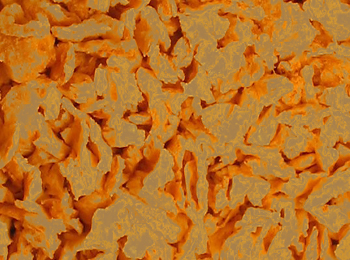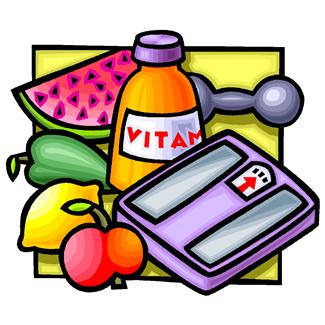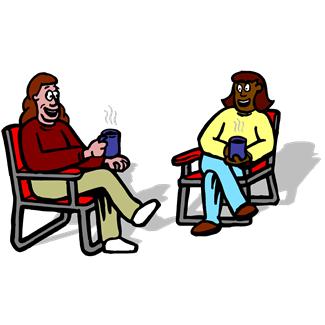The Supplement Game: Are You In It?
THE SUPPLEMENT GAME: ARE YOU IN IT? (ISSUE 84)
By Diane Gold
 The Supplement Game is big in 2013, to the tune of over $60 Billion in total. There’s a supplement for every ache in our body, every ache in our mind and every blemish that plants itself on our body’s largest and only external organ, the skin. We are groomed from an early age to take our vitamins. In case this concept hasn’t been explored, it is a part of consumerism that is made into a habit at a very young age: daily vitamins caps.
The Supplement Game is big in 2013, to the tune of over $60 Billion in total. There’s a supplement for every ache in our body, every ache in our mind and every blemish that plants itself on our body’s largest and only external organ, the skin. We are groomed from an early age to take our vitamins. In case this concept hasn’t been explored, it is a part of consumerism that is made into a habit at a very young age: daily vitamins caps.
We are taught the daily amounts of these vitamins that we should look for on a bottle so that we know we are getting the right amount. There are two flaws with this thinking and with having one universal measurement:
1) each body requires more or less depending upon our activity, our entire make-up, our diet and our genetics.
2) the “right amount” from the Department of Agriculture’s Food And Nutrition Board at the Institute Of Medicine at the National Academy of Science is often not what health professionals recommend.
The truth is we should be eating our vitamins and minerals, not taking them. Instead of being taught the combinations of foods that supply this nutrition, we get into the habit of taking a pill or a powder instead of the right foods.
WHEN SUPPLEMENTS EMPOWER
Let me clarify here that supplements can empower our lives:
1) when we don’t have the time to combine our foods perfectly, meaning it is more convenient to take a supplement than it is to search for a food to get the same vitamin or mineral.
2) while we are learning to combine foods well.
3) when we don’t have the money to obtain the perfect foods.
4) when our bodies require an extra boost.
5) when we have a deficiency that supplements can address quickly.
But food is the best source of our nutrition, by far.
I am the first to admit that I take vitamins and minerals. My goal is to get what I need from food, but I am still working on it. And I may end up choosing some supplements that are too inconvenient to get from food.
When did I begin with supplements? Four and a half years ago. Before that, I was eating what I wanted, not paying close attention to the right way to eat. Yes, I was a vegetarian for 40 years, so I didn’t ingest meat, fowl or fish. I did, however, eat lots of dairy and not enough green leafy vegetables. I did not get into the supplement game until age 60.
Even when my children were young and living with me, I did not do enough research to make certain their meals were balanced. I approximated and gave them vitamins.
So, several years ago, I took up an interest in food. I went from four-decade vegetarian to vegan in a flash, but still not a conscientious vegan. I was in it for the animals first, health, not yet. I ate packaged protein made from textured vegetable protein, which, I now know, is processed under high heat, which removes many nutrients and renders others useless.
There are also two substances that form in processing, nitrites during spray-drying and lysinoate during alkaline processing, according to the savvy vegetarian, Judith Kingbury.
 Plus, almost all the soy protein isolate, as it is usually listed in the ingredient section, is genetically modified, with many studies showing this process is detrimental to our health.
Plus, almost all the soy protein isolate, as it is usually listed in the ingredient section, is genetically modified, with many studies showing this process is detrimental to our health.
The thrill that the Chinese Restaurant down the block had a complete vegetarian menu started to wane when I realized that their fake shrimp, chicken, duck were made from this processed food that sometimes produced carcinogenic nitrites and more. The idea of shaping the food into animal shapes did not mesh with my thinking. If we chose to protect animals by not eating them, why would we be happy to pretend to eat them?
Anyway, the new information that this stuff was bad for me helped get me on the bandwagon of eating almost no processed foods.
BACK TO THE HABIT
 Let’s get back to how we get into the supplement game. We begin our journey being treated by doctors who do not have to take nutrition in school although some medical schools offer one class. We were schooled at places that offered us a choice between cardboard pizza, a processed cheese sandwich or an unidentified institutional meat with a few pieces of iceberg lettuce topped with two shreds of carrot and three shreds of red cabbage. Oh, yes, and milk, which has been proven to turn cancer on and off in rats (T. Colin Campbell’s The China Study).
Let’s get back to how we get into the supplement game. We begin our journey being treated by doctors who do not have to take nutrition in school although some medical schools offer one class. We were schooled at places that offered us a choice between cardboard pizza, a processed cheese sandwich or an unidentified institutional meat with a few pieces of iceberg lettuce topped with two shreds of carrot and three shreds of red cabbage. Oh, yes, and milk, which has been proven to turn cancer on and off in rats (T. Colin Campbell’s The China Study).
As of the year 2000, kids are learning much better nutrition in school. At home, though, most families do not have necessary knowledge about nutrition. The Healthy, Hunger-Free Kids Act, directed the USDA’s National School Lunch Program to update its nutrition to current standards which means more fruits, veggies and grains, less sodium and calorie limitation. There is still, however, a lack of strategy on how to eat well on a normal person’s budget, but teachers are more conscientious about teaching and principals are fighting harder to get better food (with the community’s help). Still, the meat and dairy industries supply schools with most of the food that is sold to the USDA as surplus. It is not the kind of food one would choose if one were selecting good quality food for one’s child, but it passes the standard which is made up for cost, not health.
CONCLUSION
It is our responsibility to teach our family good habits. It is important to know how to eat without supplements and to strive toward removing supplements from any menu. They serve the purpose of security, maintaining our ingrained habit, allow us not to learn well what to eat, give us peace of mind even though they may not be helping us. They are a quick fix that slows down our learning curve.
When we feel tired, we can have some caffeine, an energy drink or an energy bar. This type of solution is not sustainable.
When our bones get soft as we get older, we take calcium. Ca
Does it get absorbed from the supplement or are we wasting our time and money? I often wonder whether the calcium and vitamin D I take are absorbed at all. Ask the doctor? I barely get five minutes per appointment. I have asked how we can test for supplement absorption, other than blood levels of these substances, which don’t track the supplement and bone density tests. I’ll ask again.
When we have pain in the back, we take glucosamine and get a massage. For neuropathy, Vitamin Bs and alpha-lipoic acid (Dr. Weil’s recommendation). It is true that when pain is involved, we are ready to use anything that works. And we prefer supplements to drugs. So we run to use whatever the latest and greatest fix is, be it a powdered mushroom or Vitamin E for the skin.
 Why not just eat a mushroom and get that potassium, copper, selenium, vitamin B and protein?
Why not just eat a mushroom and get that potassium, copper, selenium, vitamin B and protein?
We continue to take that one-a-day vitamin set which should be obtained from our food. The idea of external to food vitamins is so ingrained in us that we will have to make a concerted effort to learn to eat the right food.
ACTION STEPS
CAUTION
Because many of us have supplement habits, it would be best to consult with your doctor before making a change. However, understand that doctors may push supplements the way they prescribe drugs. Give this some thought before taking any action and understand the place from which the answer comes. Maybe I should say consult a food advisor who has training in nutrition. But who can afford that since it’s usually not insurance reimbursed?
1) Consider weaning off vitamins and minerals. This means we have to be responsible for our own food, so we may really fight this. First skip every third day. Then every second day. Hold it, there, for a month to make sure you are eating well enough. Once you realize that you are, continue weaning. Confirming through before and after blood tests is always a good option.
2) Eat one extra green leafy vegetable serving per day.
3) Learn one new food fact per day. These facts, obviously, will accumulate, so writing them down works well.
4) Research a food replacement for one supplement a month.
5) See how you feel with the reduction of supplements, and tell a friend.

____________________________________________________________________
FEEDBACK
Please leave a comment and LIKE.
DIANE GOLD, AUTHOR
Diane Gold, Founder of Warriors of Weight, Turning Habits Into Health, is a mentor in tai chi, kung fu and meditation, a music, fitness and stress expert, dedicated mom, studying plant-based nutrition.
She considers taking supplements somehow cheating because the real way to get nutrition is from eating it. She says,
“This is a great opportunity to start studying what foods are good for us and why. We get into the supplement game at an early age, or we are taught the merits of supplements, at least. Let us study how to eat our nutrition through food, slowly remove supplements from our daily intake and let us pass this on to family, friends and future generations.”







